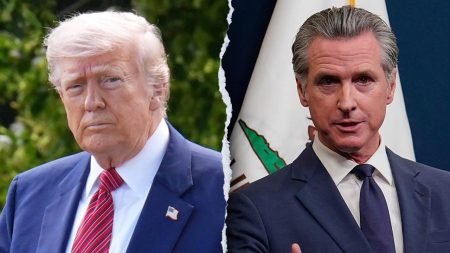The Treasury Department’s recent recovery of over $31 million in improper payments made to deceased individuals within a mere five months underscores the significant impact of leveraging the Social Security Administration’s (SSA) death database. This achievement, while laudable, highlights a long-standing issue within the federal government: the persistent challenge of preventing payments to individuals who are no longer living. This problem, as highlighted by fiscal watchdog groups like OpenTheBooks, results in substantial financial losses to taxpayers and raises concerns about the efficiency and integrity of government programs. The $31 million recovery represents a small fraction of the vast sums of money misdirected to deceased recipients, indicating the enormous potential for future savings if access to the SSA’s database is maintained and expanded.
The magnitude of the problem is staggering. OpenTheBooks estimates that nearly $3.6 billion in COVID-19 stimulus payments were erroneously sent to deceased individuals across three rounds of distribution. This egregious misallocation of funds during a national crisis emphasizes the urgent need for improved coordination and data sharing between government agencies. The Government Accountability Office (GAO) corroborates this assessment, estimating that $1.4 billion was sent to deceased individuals in the first round of stimulus checks alone. These figures paint a stark picture of the government’s failure to effectively manage taxpayer dollars and underscore the critical importance of implementing preventative measures like accessing the SSA’s death database.
The SSA possesses a unique resource, the federal death database, which contains comprehensive records of deceased U.S. citizens. Until recently, this invaluable tool remained largely untapped by other government agencies. In 2023, Congress granted the Treasury Department temporary access to this database as part of an omnibus appropriations bill. This temporary access, set to expire in 2026, has already yielded substantial results, demonstrating the significant potential for preventing improper payments if permanent access is granted. The current arrangement, while a step in the right direction, remains insufficient to address the scale of the problem fully.
Fiscal watchdog groups, like OpenTheBooks, have long advocated for greater transparency and accountability in government spending. They argue that access to the SSA’s death database should be a fundamental requirement for any agency disbursing public funds. John Hart, executive director of OpenTheBooks, welcomed the Treasury Department’s recent success but emphasized the need for permanent access to the database. He lamented the “trillions of dollars in improper payments” resulting from a lack of communication and coordination between government agencies, emphasizing the urgent need for a more integrated and efficient system.
The problem extends beyond stimulus payments. The Small Business Administration (SBA) also disbursed over $3 billion in forgivable loans to deceased individuals and entities listed on the Treasury Department’s “Do Not Pay” list. This further exemplifies the widespread nature of the issue and highlights the need for a comprehensive solution. Hart attributes the misallocation of billions in COVID-19 stimulus payments to the IRS’s failure to consult the SSA’s death database. This oversight, he argues, reflects a systemic failure to utilize readily available resources to prevent wasteful spending.
David Lebryk, Fiscal Assistant Secretary, acknowledged the significance of the recovered funds but emphasized that this represents “just the tip of the iceberg.” He strongly advocates for permanent access to the SSA’s Full Death Master File, asserting that it would significantly reduce fraud, improve program integrity, and safeguard taxpayer dollars. This sentiment is echoed by fiscal watchdog groups and underscores the bipartisan support for a permanent solution to this persistent problem. The current temporary access, while beneficial, is a short-term fix that fails to address the underlying systemic issues. Granting permanent access would empower the Treasury Department to proactively prevent improper payments, ensuring the responsible and efficient use of taxpayer funds. This crucial step would not only save billions of dollars but also enhance public trust in the government’s ability to manage its finances effectively.










